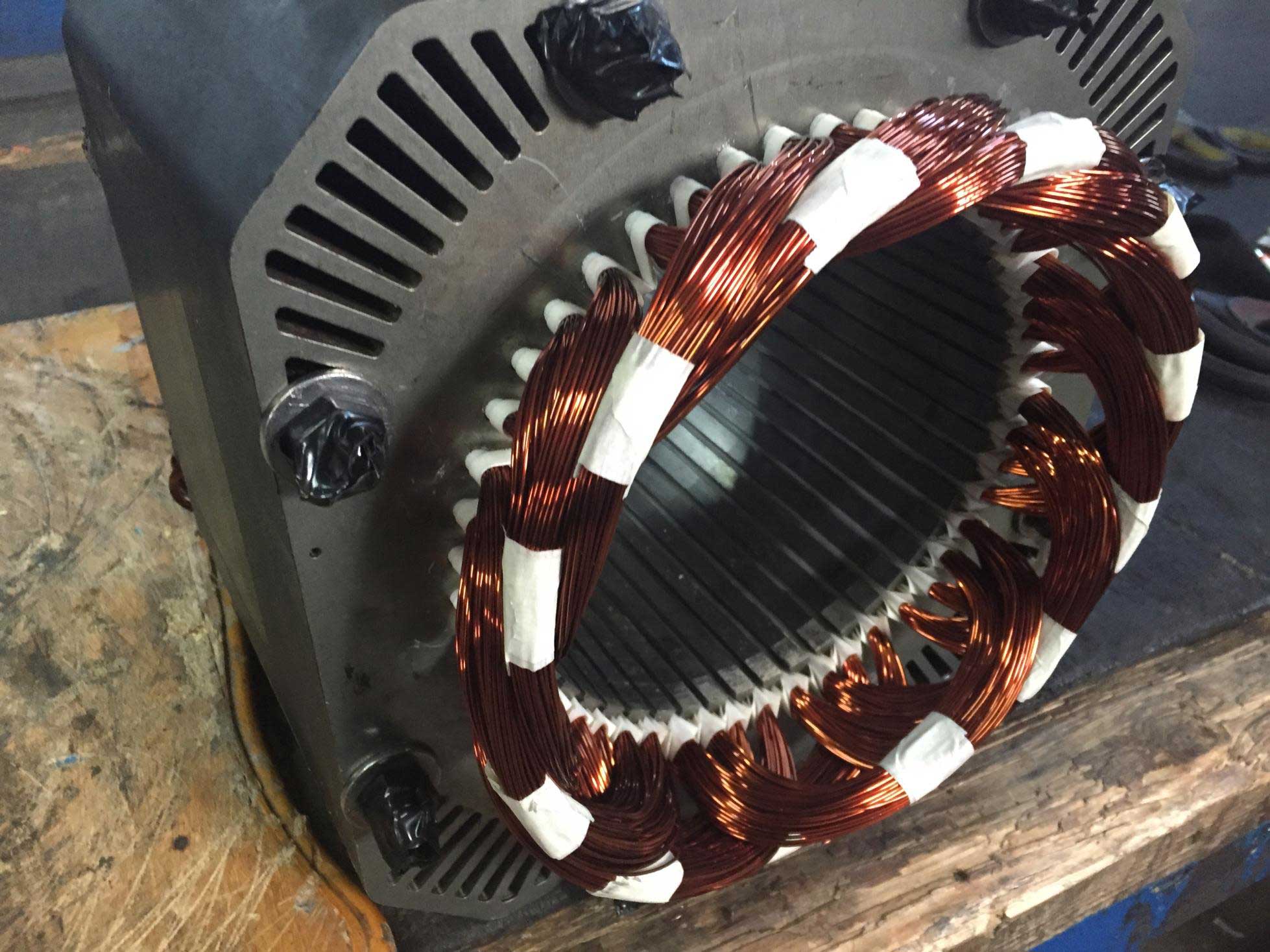
The problems related to the stator winding of spindle motors brought to our workshop for repair and maintenance purposes are resolved in our dedicated winding facility.
In our well-established winding workshop, we are capable of successfully and professionally handling the winding (rewinding) of various types of electric motors, including servo motors, spindle motors, asynchronous motors, DC motors, high-voltage motors, and many others, without any power or voltage limitations.
For the winding of spindle motors and other motors, we utilize high-quality winding materials such as H-class enamel copper wire, F-class insulation papers, and other premium-grade winding components. With the combination of these quality materials and skilled workmanship, we can effectively solve the problems faced by our valued customers.
Furthermore, after the winding process, all motors undergo insulation and surge tests using state-of-the-art testing equipment to ensure the quality of the performed work. This guarantees the quality of the process. As a result of our confidence in this quality, we provide a one-year warranty for all our servo motor repair, maintenance, and rewinding services.
Read More
